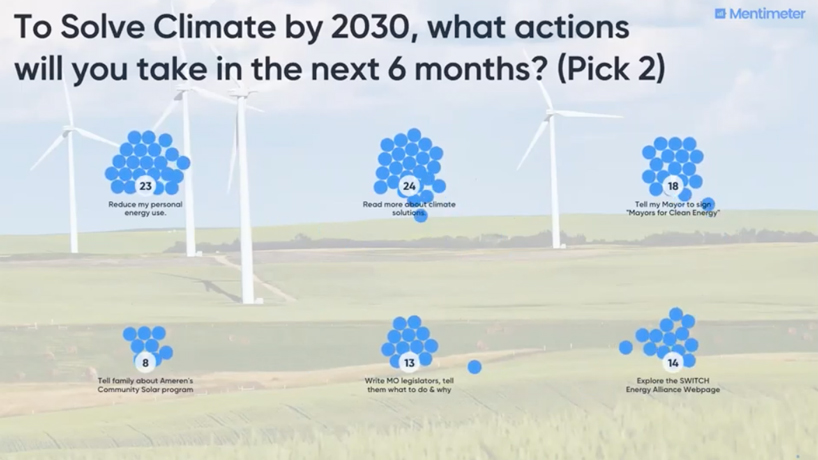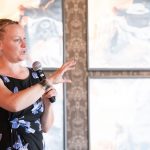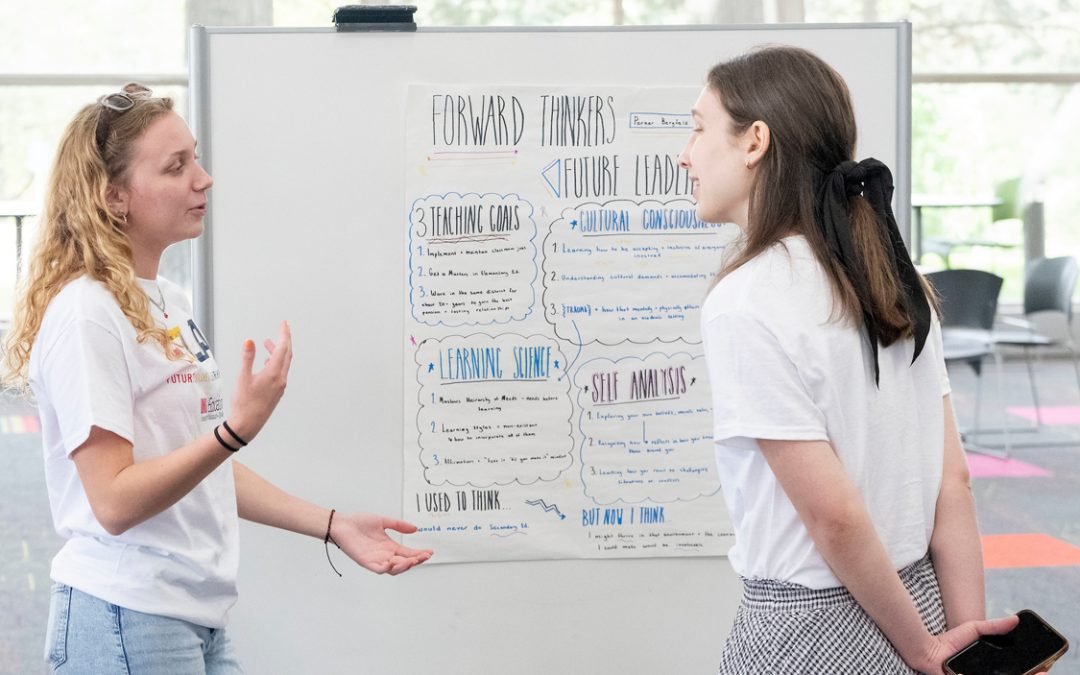
More than 200 people logged into the Missouri “Solve Climate by 2030” webinar. Theresa Coble from UMSL’s College of Education joined colleagues from Washington University in St. Louis’ Climate Change Program to organize the event.
An audience of more than 200 college and high school students logged in last Tuesday evening for a webinar presenting actionable steps Missouri can take over the next decade to address the problem of climate change.
Theresa Coble, the E. Desmond Lee Endowed Professor of Experiential and Family Education in the College of Education at the University of Missouri–St. Louis joined colleagues from Washington University in St. Louis’ Climate Change Program to organize the statewide event.
It was part of “Solve Climate by 2030,” a nationwide teach-in coordinated by faculty at Bard College in New York to generate enthusiasm for and accelerate state-level climate action by spotlighting ambitious, yet feasible ways to effect change. Similar sessions took place simultaneously in nearly all 50 states as well as Washington, D.C., Puerto Rico and several countries.
Eban Goodstein, the director of the Bard Center for Environmental Policy, kicked off the webinar and drew a parallel between climate change and current circumstances created by the COVID-19 pandemic.
“When we launched Solve Climate a year ago, we could never have imagined today, entire countries and much of the world’s economy would be shut down with hundreds of thousands of people ill, thousands having passed away and our health systems overwhelmed,” he said. “I take that back. We could easily have imagined this. Our health experts and scientists warned us this was coming after SARS and MERS. They told us this was coming. And yet we didn’t take preventive action. We didn’t prepare. COVID-19 has shown how fragile our health and economic systems are to extreme events.
“Our scientists have told us clearly that, unchecked, climate change will turn our lives into an unending series of extreme events, floods, droughts, rising sea levels, pests and disease, more extreme storms and hurricanes, all of this leaving hundreds of millions of people homeless and on the move. We can change this. We still have time to change that future.”
As discussion focused on individual states, viewers in Missouri heard from John Hickey, the director of the Missouri chapter of the Sierra Club; Andrew Linhares, the regional director and senior counsel of Renew Missouri; and Gwen Mizell, the vice president of sustainability and electrification at Ameren, discussing specific causes of the specific challenges and offering some solutions.
Linhares said that coal-fired power plants are the leading cause of the CO2 emissions in Missouri, unlike in many other states where car emissions make up the largest percentage of CO2 being released into the atmosphere.
He also shared data that shows Missouri ranks 30th out of 50 states in energy efficiency.
“That’s the one we should always start with,” Linhares said. “It is the cheapest way for utilities and customers to meet their energy needs. So it’s kind of negative energy production, but it is by far the cleanest and the cheapest form. Utilities can encourage energy efficiency through programs.”
Missouri also has significant room for improvement taking advantage of renewable energy sources such as wind and solar power. Linhares said only between 10 and 15 percent of Missouri’s energy production comes from renewable sources, and it ranks 43rd out of 50 states.
To begin changing that, it need only follow the lead of neighbors Iowa and Kansas, which are two of the biggest producers of wind power in the world. Hickey said both states produce 37 percent of their electricity from wind power compared to only 2 percent in Missouri.
“I’m a native Missourian, and I don’t think Missourians are dumber than people in Iowa or Kansas and we can’t figure it out,” he said. “We can do it to too, and that technology is today. That’s not what we can do in five years or 10 years. That is Kansas and Iowa today, so I want to identify three opportunities I see in Missouri for improving our clean energy environment.”
Hickey advocated for approval of the Grain Belt Express Transmission Line, a high-voltage, direct current transmission line that would bring wind energy from southwest Kansas into Missouri, helping to power at least 35 small towns across Missouri that are part of the Missouri Public Energy Pool and would provide electricity in the St. Louis area.
He also spoke of the need for counties and cities across the state to update their building energy codes to require the construction of more efficient buildings.
Lastly, he talked about the improvement that could be made if cities moved to electric transit buses and said Bi-State Development Agency recently purchased 18 such buses to begin serving the St. Louis region.
“Right now, pollution from diesel buses and diesel trucks because it’s emitted close to the ground is particularly hard on human health,” Hickey said.
Mizell spoke about Ameren’s role, as the region’s leading energy provider, to mitigate the impact on the planet.
“When we think when we talk about climate at Ameren, we don’t talk about it in isolation,” Mizell said. “We talk about it in the context of an overall sustainability strategy. That sustainability to us means that we have to balance the needs of competing interests, and we have to make decisions today, many times with imperfect information that will affect us in the future.”
The company has to weigh environmental, social and governmental considerations.
Mizell said the company is aiming to increase the use of renewable energy sources as rapidly as possible but must retain the reliability of the current system as well as maintain customer affordability. It is working to retire existing coal-fired plants in what she described as a “thoughtful manner consistent with our integrated resource plan that has been approved by the Missouri Public Service Commission.”
View the entire webinar below.














